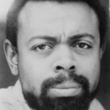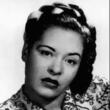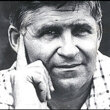Strange fruit : Billie Holiday, Café Society, and an early cry for civil rights
(Book)
782.42165 HOLIDAY MARGO
1 available
Copies
| Location | Call Number | Status |
|---|---|---|
| Central - Adult Nonfiction | 782.42165 HOLIDAY MARGO | Available |
Description
More Details
Notes
Excerpt
Similar Titles From NoveList
Similar Authors From NoveList
Published Reviews
Booklist Review
Anyone who has heard Billie Holiday sing "Strange Fruit" knows of, if not understands, the awful shame blacks have had to bear living in America. The first two lines explain it: "Southern trees bear a strange fruit, / Blood on the leaves and blood at the root." Holiday first sang this dirge in early 1939 in the integrated CafeSociety nightclub in New York, and soon after that fateful event, it became Holiday's signature song. Margolick tells that story and many more concerning "Strange Fruit" in this biography of the song itself, which is being published on the eighty-fifth anniversary of Holiday's birth. Bobby Short, the diminutive supper-club singer, aptly characterizes the early protest song as "a way of moving the tragedy of lynching out of the black press and into the white consciousness." Studs Turkel further defines it: "When you think of the South and Jim Crow, you naturally think of the song, not of `We Shall Overcome.'" But time is fleeting, so it isn't utterly surprising that "Strange Fruit" is not heard today or that its significance as a historical document is barely known. Margolick corrects all that with this terribly engrossing book--one that the curious reader will devour in one sitting. --Bonnie Smothers
Publisher's Weekly Review
In 1939, at Greenwich Village's Left-wing Caf Society, Billie Holiday gave the first public performance of a song whose lyrics tender a gory vision of a lynched black man hanging from a tree. The song, "Strange Fruit," became one of Holiday's signature pieces, eliciting strong emotions in black and white audiences alike. Now Margolick, a contributing editor at Vanity Fair, has written a history of the song that Q, a British music publication, counted among the "ten songs that actually changed the world." Following "Strange Fruit" from its birth at the hand of Jewish schoolteacher and Communist Abel Meeropol through its occasional present-day revivals by a smattering of intrepid musicians, Margolick culls the opinions of music scholars on the influential ballad's cultural and musical impact and quotes critics from Holiday's era. He consults sources including black newspapers, radio stations, record sales and jukebox data to determine who actually heard "Strange Fruit" and how different groups reacted. Most effectively, by drawing on personal recollections of Holiday, Meeropol, Caf Society promoter Barney Josephson and people who heard Holiday sing the song either live or on vinyl--plus a brief history of Southern lynchings--Margolick re-creates the tense web of bitterness, guilt, denial and anger that surrounded Holiday's charged performances of "Strange Fruit." With thorough research and the smooth writing of a journalist, Margolick has produced a superb piece of cultural history. Photos. Author tour. (Mar.) (c) Copyright PWxyz, LLC. All rights reserved
Library Journal Review
How did a lurid ("Black body hanging in the Southern breeze,/ Strange fruit hanging from the poplar trees") and almost rhythmless protest song about Southern lynching become a Depression-era sensation at the Greenwich Village nightclub Cafe Society and later around the world? The great Billie Holiday sang it, for one thing. This story of the life of the 1939composition written by a Bronx leftist school teacher, Abel Meeropol, and claimed for years by its most famous singer (who made it one of her standards) takes an interesting approach. Margolick (Undue Influence) presents a quick, fluent survey of the times and characters that formed "strange Fruit" - a song that inspired and enraged many listeners in those days before the Civil Rights movement and changed Holiday as a performer. The book is also (at 144 wide-margined pages) barely padded-out from its beginnings as a Vanity Fair article. When Margolick exhausts the story of the ballad's provocative early performance and the evolving folklore surrounding its authorship, he adds on lightweight testimonials by later performers who've wrestled with "Strange Fruit" - Tori Amos, Natalie Merchant, Cassandra Wilson, Sting-but you sense that the real story is over even before it so quickly ends. Recommended for large public libraries, this does not replace Holiday biographies. [This book is being published on April 7, Lady Day's 85th birthday; Time magazine named "Strange Fruit" the Best Song of the Century.-Ed.]-Nathan Ward, "Library Journal" (c) Copyright 2010. Library Journals LLC, a wholly owned subsidiary of Media Source, Inc. No redistribution permitted.
Kirkus Book Review
Expanding on an article that originated in the pages of Vanity Fair, Margolick (At the Bar, 1995) traces the relationships between ``Strange Fruit'' (a 1930s ballad describing a lynching), Billie Holiday (its best-known interpreter), and those who heard it sung by her. In 1937 a New York union publication printed a poem entitled ``Bitter Fruit'' that described the sight of a lynching. The writer, Abel Meeropol, was a 27-year-old communist and schoolteacher who frequently set his own words to music. He did so once more with the poem, and when a director from Caf Society (the progressive Greenwich Village nightspot) heard the song and brought it to the attention of Holiday, she added it'now known as ``Strange Fruit'''to her repertoire. The song was an immediate sensation (the political left, in particular, took it up almost as a kind of anthem), although it appears that Holiday herself was initially unaware of what precisely it was describing. Margolick quickly sorts through the much-argued particulars that led to the meeting of song and singer'and which led in turn to the confrontation between Holiday's audience and the subject. The story of how white impresarios pushed an already-notorious black performer to sing about something as barbarous as lynching makes the first third of the book fascinating cultural history. The pages documenting reaction to the song over the years quote sources ranging from Civil War historian Shelby Foote to pop musician Natalie Merchant and'like the book as a whole'have a where-were-you-when-you-first-heard-it tone that gives them the earnest, if lightweight, feel of a network documentary. Although Margolick falls considerably short of the ambitions suggested by his subtitle, he nevertheless captures divergent stories of song and singer that will appeal to fans of Holiday and pop history. (14 b&w photos) (First printing of 50,000; first serial to Vanity Fair; $50,000 ad/promo; author tour; radio satellite tour)
Booklist Reviews
/*Starred Review*/ Anyone who has heard Billie Holiday sing "Strange Fruit" knows of, if not understands, the awful shame blacks have had to bear living in America. The first two lines explain it: "Southern trees bear a strange fruit, / Blood on the leaves and blood at the root." Holiday first sang this dirge in early 1939 in the integrated CafeSociety nightclub in New York, and soon after that fateful event, it became Holiday's signature song. Margolick tells that story and many more concerning "Strange Fruit" in this biography of the song itself, which is being published on the eighty-fifth anniversary of Holiday's birth. Bobby Short, the diminutive supper-club singer, aptly characterizes the early protest song as "a way of moving the tragedy of lynching out of the black press and into the white consciousness." Studs Turkel further defines it: "When you think of the South and Jim Crow, you naturally think of the song, not of `We Shall Overcome.'" But time is fleeting, so it isn't utterly surprising that "Strange Fruit" is not heard today or that its significance as a historical document is barely known. Margolick corrects all that with this terribly engrossing book--one that the curious reader will devour in one sitting. ((Reviewed March 1, 2000)) Copyright 2000 Booklist Reviews
Publishers Weekly Reviews
In 1939, at Greenwich Village's Left-wing Caf Society, Billie Holiday gave the first public performance of a song whose lyrics tender a gory vision of a lynched black man hanging from a tree. The song, "Strange Fruit," became one of Holiday's signature pieces, eliciting strong emotions in black and white audiences alike. Now Margolick, a contributing editor at Vanity Fair, has written a history of the song that Q, a British music publication, counted among the "ten songs that actually changed the world." Following "Strange Fruit" from its birth at the hand of Jewish schoolteacher and Communist Abel Meeropol through its occasional present-day revivals by a smattering of intrepid musicians, Margolick culls the opinions of music scholars on the influential ballad's cultural and musical impact and quotes critics from Holiday's era. He consults sources including black newspapers, radio stations, record sales and jukebox data to determine who actually heard "Strange Fruit" and how different groups reacted. Most effectively, by drawing on personal recollections of Holiday, Meeropol, Caf Society promoter Barney Josephson and people who heard Holiday sing the song either live or on vinyl plus a brief history of Southern lynchings Margolick re-creates the tense web of bitterness, guilt, denial and anger that surrounded Holiday's charged performances of "Strange Fruit." With thorough research and the smooth writing of a journalist, Margolick has produced a superb piece of cultural history. Photos. Author tour. (Mar.) Copyright 2000 Cahners Business Information.
Reviews from GoodReads
Citations
Margolick, D. (2000). Strange fruit: Billie Holiday, Café Society, and an early cry for civil rights . Running Press.
Chicago / Turabian - Author Date Citation, 17th Edition (style guide)Margolick, David. 2000. Strange Fruit: Billie Holiday, Café Society, and an Early Cry for Civil Rights. Philadelphia: Running Press.
Chicago / Turabian - Humanities (Notes and Bibliography) Citation, 17th Edition (style guide)Margolick, David. Strange Fruit: Billie Holiday, Café Society, and an Early Cry for Civil Rights Philadelphia: Running Press, 2000.
Harvard Citation (style guide)Margolick, D. (2000). Strange fruit: billie holiday, café society, and an early cry for civil rights. Philadelphia: Running Press.
MLA Citation, 9th Edition (style guide)Margolick, David. Strange Fruit: Billie Holiday, Café Society, and an Early Cry for Civil Rights Running Press, 2000.






























